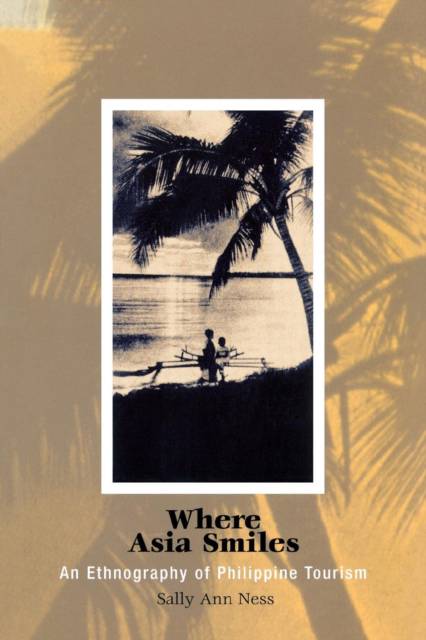
- Afhalen na 1 uur in een winkel met voorraad
- Gratis thuislevering in België vanaf € 30
- Ruim aanbod met 7 miljoen producten
- Afhalen na 1 uur in een winkel met voorraad
- Gratis thuislevering in België vanaf € 30
- Ruim aanbod met 7 miljoen producten
Omschrijving
Where Asia Smiles offers an understanding of tourism and its cultural consequences that is neither a lament at the arrival of tourists nor an endorsement of the industry as a blanket resolution of social ills in "underdeveloped" places. Examining the relationship of tourism to cultural identity and practice in Davao City, Mindanao, Philippines, Sally Ness observes and documents what is at stake for various actors who have entirely different objectives in the creation of a new cultural landscape. Ness takes an approach that emphasizes the relationship of tourism to the idea of home and the cultivation of all that home supports. Without forcing an interpretation, she draws from her own remembrances and hesitations to explore the ways one is obliged to live within the presence of this geocultural reality.
Based on twelve months of research conducted in the 1990s, the study tracks the development of tourism during a time when the industry was growing faster in the Asian and Pacific Islands than anywhere else in the world. Ness focuses on individuals and families engaged in three types of tourism development: family-owned beach resorts, urban economy hotels, and a government-developed tourism estate. With great sensitivity to detail, she records the insights of those dealing with tourism in their home territories, observing closely the cultural consequences of tourism's particular way of operating at one unique developing location.Specificaties
Betrokkenen
- Auteur(s):
- Uitgeverij:
Inhoud
- Aantal bladzijden:
- 328
- Taal:
- Engels
- Reeks:
Eigenschappen
- Productcode (EAN):
- 9780812218268
- Verschijningsdatum:
- 31/10/2002
- Uitvoering:
- Paperback
- Formaat:
- Trade paperback (VS)
- Afmetingen:
- 139 mm x 252 mm
- Gewicht:
- 517 g

Alleen bij Standaard Boekhandel
Beoordelingen
We publiceren alleen reviews die voldoen aan de voorwaarden voor reviews. Bekijk onze voorwaarden voor reviews.











